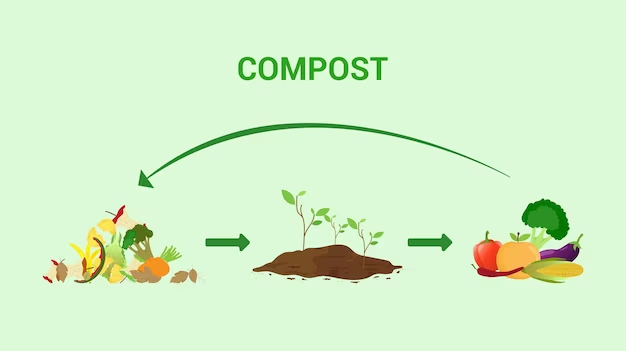Views: 100 Author: Site Editor Publish Time: 2024-09-23 Origin: Site

Composting is an environmentally friendly way to recycle organic waste, and commercial composting takes the concept to a much larger scale.
What is Commercial Composting?
Commercial composting refers to the industrial-scale process of converting organic waste into compost, a nutrient-rich soil conditioner. Unlike backyard composting, which is typically limited to residential waste, commercial composting facilities process a wide range of organic materials, including food scraps, yard waste, and agricultural residues. The process not only reduces landfill waste, but also produces high-quality compost for agricultural, landscaping, and gardening applications.

How Commercial Composting Works
The commercial composting process involves several key steps:
| 1 | Collection | Organic waste is collected from a variety of sources, including restaurants, grocery stores, and farms. |
| 2 | Sorting | The collected materials are sorted to remove non-decomposable contaminants such as plastics and metals. |
| 3 | Shredding | The organic waste is shredded into small pieces to speed decomposition. |
| 4 | Aerobic Decomposition | The shredded material is placed in large piles or ventilated containers. Oxygen is introduced to encourage aerobic bacteria to decompose organic matter. |
| 5 | Monitoring | Temperature, humidity, and oxygen levels are monitored regularly to optimize the composting process. |
| 6 | Curing | After the active composting phase, the material is left to cure to allow the compost to mature and stabilize. |
| 7 | Screening | The finished compost is screened to remove any remaining large particles and ensure a uniform product. |
Top Benefits of Commercial Composting
Commercial composting offers several significant benefits:
1. Waste Reduction: It diverts organic waste from landfills, helping to reduce the total amount of waste and lower landfill costs.
2. Soil Health: The resulting compost provides nutrients to the soil, improving soil structure, moisture retention, and biodiversity.
3. Carbon Sequestration: Composting helps capture carbon dioxide from the atmosphere, mitigating climate change by reducing greenhouse gas emissions.
4. Economic Opportunities: Commercial composting creates jobs in waste management and green technologies, contributing to the local economy.

Challenges of Commercial Composting
Despite its many benefits, commercial composting also faces several challenges:
1. Contamination: Ensuring that non-compostable materials do not enter the waste stream can be difficult and requires a strong sorting system.
2. Public awareness: Many people are unaware of the benefits of composting, resulting in low participation in organic waste collection programs.
3. Regulatory barriers: Complying with local regulations regarding waste management and compost production can be complex and costly.
4. Market demand: The success of commercial composting depends on the market availability of finished compost products, which varies by region.
Commercial composting is an important process that transforms organic waste into a valuable resource while promoting sustainable development. By understanding how it works, its benefits, and its challenges, businesses and communities can work together to strengthen composting efforts and contribute to a healthier environment.